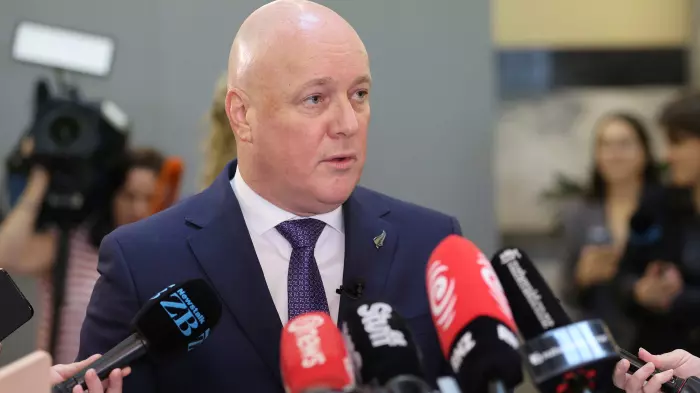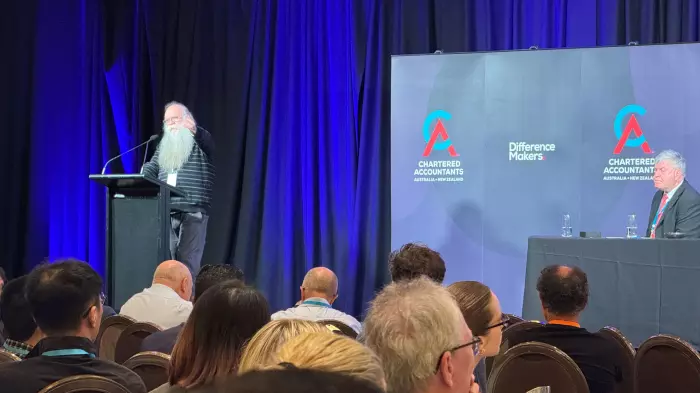The phrase “cash is king” is well known in business. It speaks primarily to the idea that the availability of liquid funds in a business is important because of the flexibility it provides in a crisis. But what if a crisis, brought on by legislative, regulatory or political change, could be mitigated? Would you consider proactively investing in the civic wellness of your business?
Like many strategic approaches adopted by business, good political lobbying is always proactive, not reactive. Being proactive means you focus on eliminating problems before they have a chance to appear, while a reactive approach is based on responding to issues after they appear. Every business operates at the behest of legislation – what we can do, what we cannot, how we run our workforce, how we protect it – so it makes sense that a business be cognisant of political dealings and policy direction. However, not once in my career have I come across a small business that has surplus cash it’s looking to tip down the illusive political-engagement drain.
In the most recent article in this series, we explored how small businesses can introduce political engagement into their operations by providing five steps to help build a basic advocacy plan. If you read that article you will also know that getting in front of your local member of parliament is the first recommended step. But what next? Read on to learn about the three priority groups all small businesses should consider engaging with as part of successful lobbying.
Three priority rōpū: who, what, why and how to lobby them
1. Legislature
Who? Legislature is another word for parliament, which is the country’s supreme law-making body. Parliament consists of members of parliament (MPs) and the governor-general, who represents our British-based monarch. Contrary to popular belief, the Beehive is not the home of parliament; the Beehive is home to the executive (discussed below). Parliament House is to the right of the Beehive, identifiable by large grey marble columns outside. Inside, you will find the debating chamber: a horseshoe-shaped hall best known for its thick green carpets and green leather seats. Select committee rooms, where MPs can examine issues in more detail than is possible in the House, are dotted throughout the precinct.
What? The principal role of the legislature is to debate and vote on legislation, which, if passed, the governor-general signs into law. The office of governor-general is apolitical, which means your priority engagement point for the legislature will be MPs (those in the House of Representatives). Other roles of the House include supplying the MPs who will form the executive (see below), representing New Zealanders by giving a voice to different ideas from people and organisations, and scrutinising the actions of the government, including its spending. Five parliamentary parties are represented in the 53rd parliament by 120 MPs. Sixty-five of these MPs represent general electorate seats, seven represent Māori electorates, and the other 48 are selected from the party lists.
Why? MPs represent us in parliament. You have the right to contact an MP to discuss any issue. You might seek to engage with an MP to advocate for a cause or kaupapa (issue) you care about, or if you want to better understand their view on a particular issue.
How? The contact details for all members of parliament are online. You can contact them at their offices in the parliamentary complex or at their electorate or community offices.
2. Executive
Who? Strictly speaking the executive consists of ministers (both inside and outside the cabinet) and government departments. For the purpose of this article we are looking at the executive as ministers only – that is, members of the House, appointed by the governor-general as ministers of the crown. Under MMP there are three types of ministers: a cabinet minister, a minister outside cabinet and a support-party minister. This generally speaks to their “rank”, with the prime – meaning tuatahi (first) or one – minister being the “first minister”. Regardless of their rank, all ministers are responsible for the actions, successes and failures of their departments.
Knowing exactly who is and who is not a minister takes time and research but it can be understood in a nutshell by this statement: all ministers are MPs, but not all MPs are ministers.
What? The role of the executive is to decide policy, propose laws (which must be approved by the legislature) and administer the law. In short, the executive is responsible for running of country. This means it makes day-to-day decisions on how and what New Zealand should spend taxpayer money on, as well as deciding which policies get put into practice. Pūtea (money) and policy are the two biggest levers any government has to enact change.
Why? If you are looking to influence the trajectory of government decision-making – especially with regard to government investment or policy positioning – then the relevant minister is your priority engagement point. This means you approach the minister responsible for issues relating to your sector or issue, not all and sundry. However, it is also important to keep in mind that ministers are considered the apex of the government machine: they are busy and everyone is lobbying for their time, attention and energy. Before you approach a minister’s office, ensure you know your kaupapa inside out. Engage with a purpose in mind; never engage for engagement’s sake.
How? Contacting ministers of the crown is relatively simple. Beehive.govt.nz is the best place to find information on ministers as well as on government initiatives and policies. Search for ministers by their name or portfolio and it will bring up their contact details.
The Department of the Prime Minister and Cabinet also issues the Ministerial List, which contains information on the current ministers of the crown and the portfolios and other responsibilities that they hold.
3. Officials
Who? Public servants, state servants or bureaucrats: these are all terms for officials. The work of officials centres around providing strong support for the good government of New Zealand. A major characteristic of New Zealand's constitutional arrangements is that public sector organisations are apolitical. Being apolitical – or politically neutral – is a requirement of the public service in order to maintain impartiality and ensure future governments can be confident officials will support them and be equally fit to carry out the work of their administration. Political neutrality within the bureaucracy is best understood by the following phrase: even when governments change, officials stay the same.
What? Officials provide support to the government in a range of ways, including written and oral briefings, talking points, policy reviews, jurisdictional research and meeting support. More importantly for businesses, it is the job of officials to ensure their advice is informed by the expertise and perspectives of external stakeholders. This is to ensure the advice the public servants are providing is grounded in reality, is practicable, and provides a good understanding of both the challenges and opportunities when choices are to be made.
Why? You might seek to engage with officials to get a better understanding of the line of sight around policy development with regard to a particular issue, or you might be seeking to strengthen organisational ties in order to improve the way your business responds to legislative or regulatory change. Much like engaging with the legislature or the executive, you must have a reason to engage. Many officials, especially those in decision-making positions, are time poor: they have a duty to parliament and the government, as well as the public. Any engagement should be with a distinct purpose in mind, and you should inform yourself of the scope of service of each department.
The Public Service Commission has a map you can use to find out where each organisation fits inside the public sector. As mentioned above, technically speaking, the public service is part of the executive branch of government; however, I recommend thinking of them as distinct parts of the same system, given ministers can, and do, think politically about decisions, while officials are required to work in a politically neutral manner.
How? Around 429,500 people were employed in the public sector in 2020, 18.5% of New Zealand’s total workforce (2,317,402). The majority (88%) were working in the central government sector (376,200); 12% were in local government (53,300). This means that identifying which state sector officials to approach is often much harder to determine than who to approach within the legislature and executive. A full list of state sector organisations can be found here.
If, after all of this, you are ready to begin your government relations journey, it is important to remember there is no one-size-fits-all approach. First, identify your who – and then ask yourself, why? You will always have a greater chance of success if you understand the drivers of the group you are engaging with. Members of the legislature are often driven by giving a voice to a broad spectrum of New Zealanders, the executive by enacting the day-to-day management of the country in line with their political beliefs, and officials by their desire to serve the government to the best of their ability.
Human nature means that everyone always believes their kaupapa is the most important, no matter what else is going on. So, if you take the time to better understand the who, what, why and how to lobby, and add in a dash of trial and error, you have a better chance of ensuring those you seek to engage with will find your kaupapa important, too.
Holly Bennett (Te Arawa, Ngāti Whakaue, Ngāti Pikiao) is the founder and principal consultant of Auckland-based government relations firm Awhi and the founder of New Zealand’s leading government relations education organisation, Engage. PolitiPal is their free monthly political pānui.












